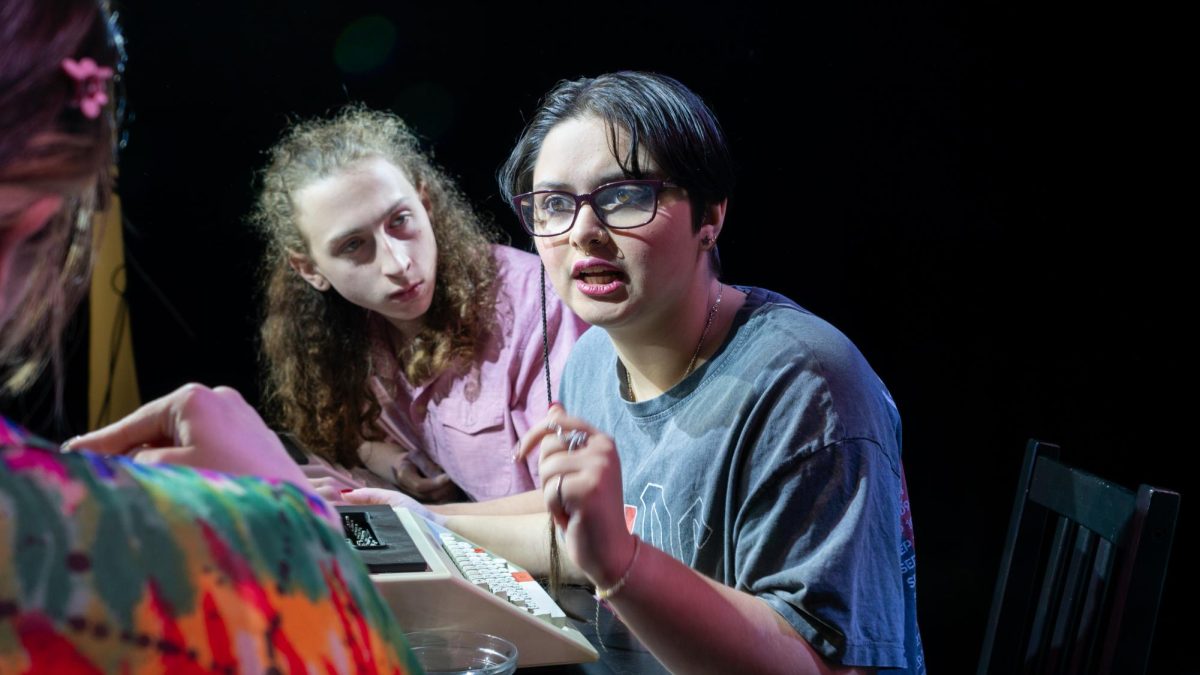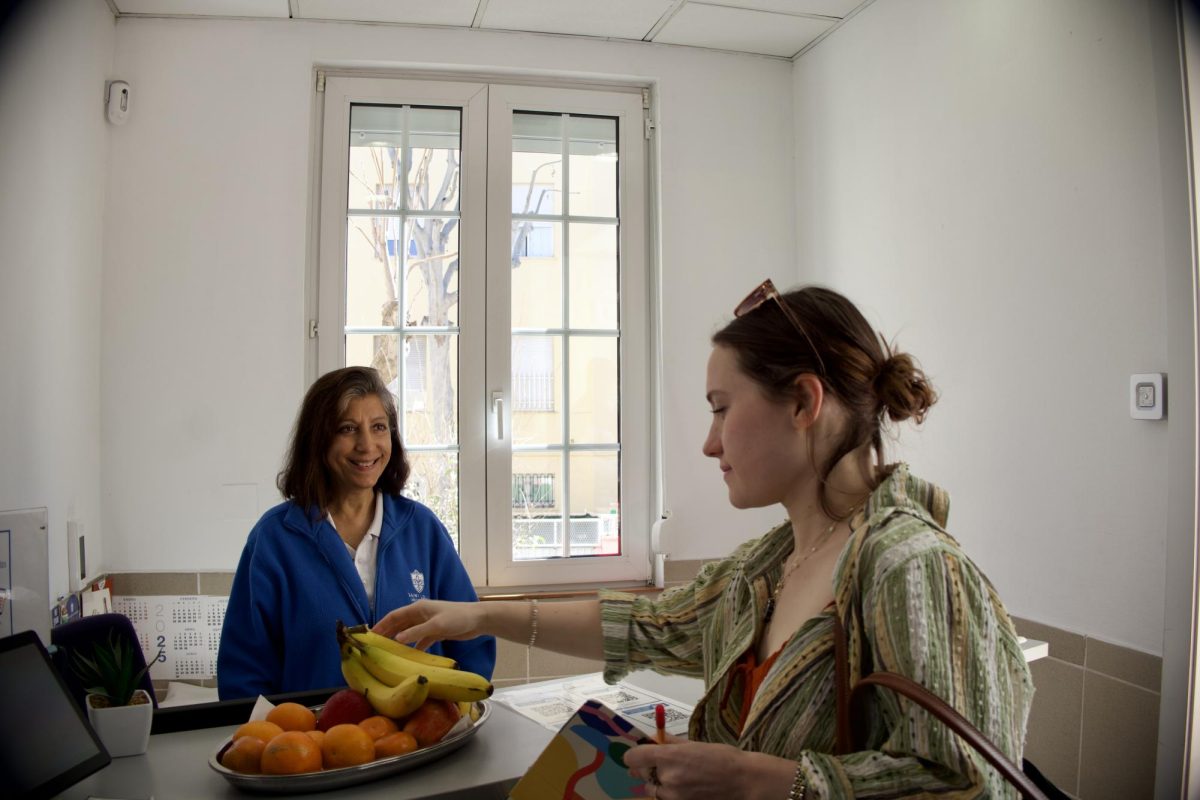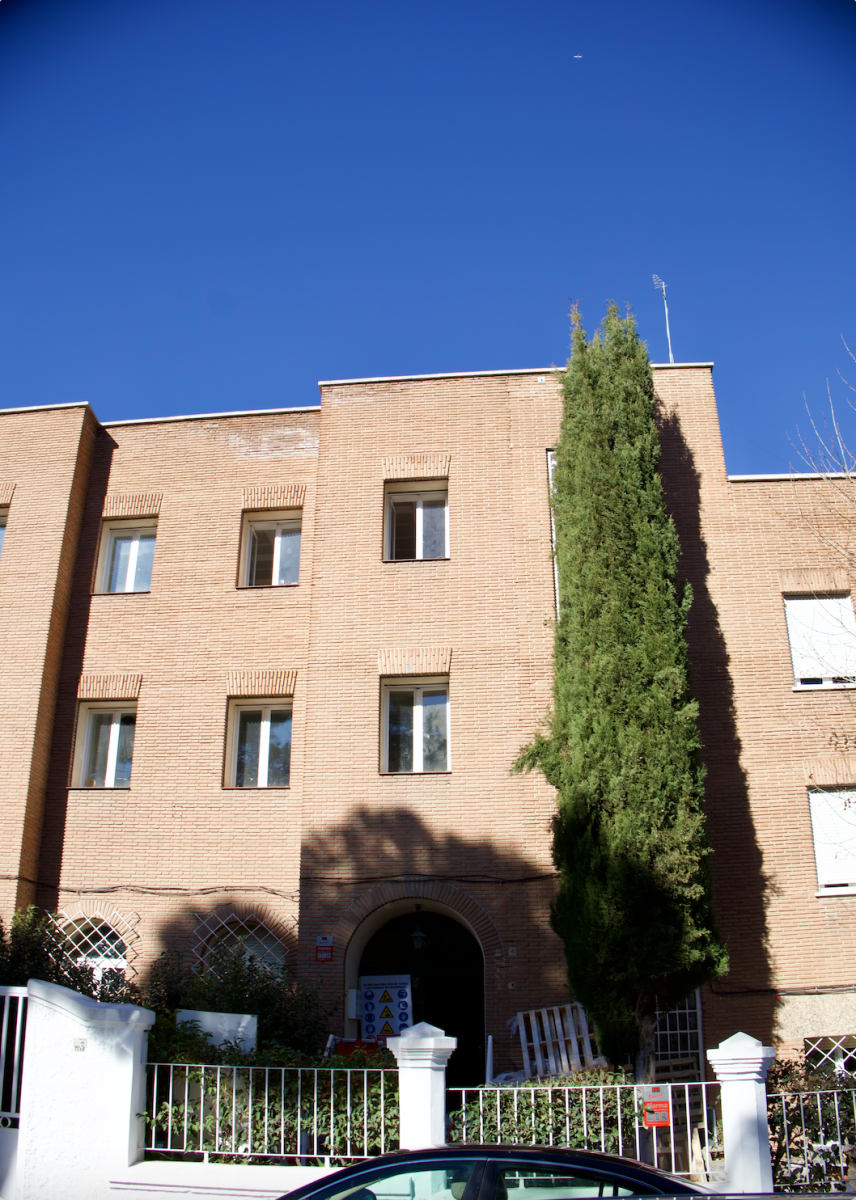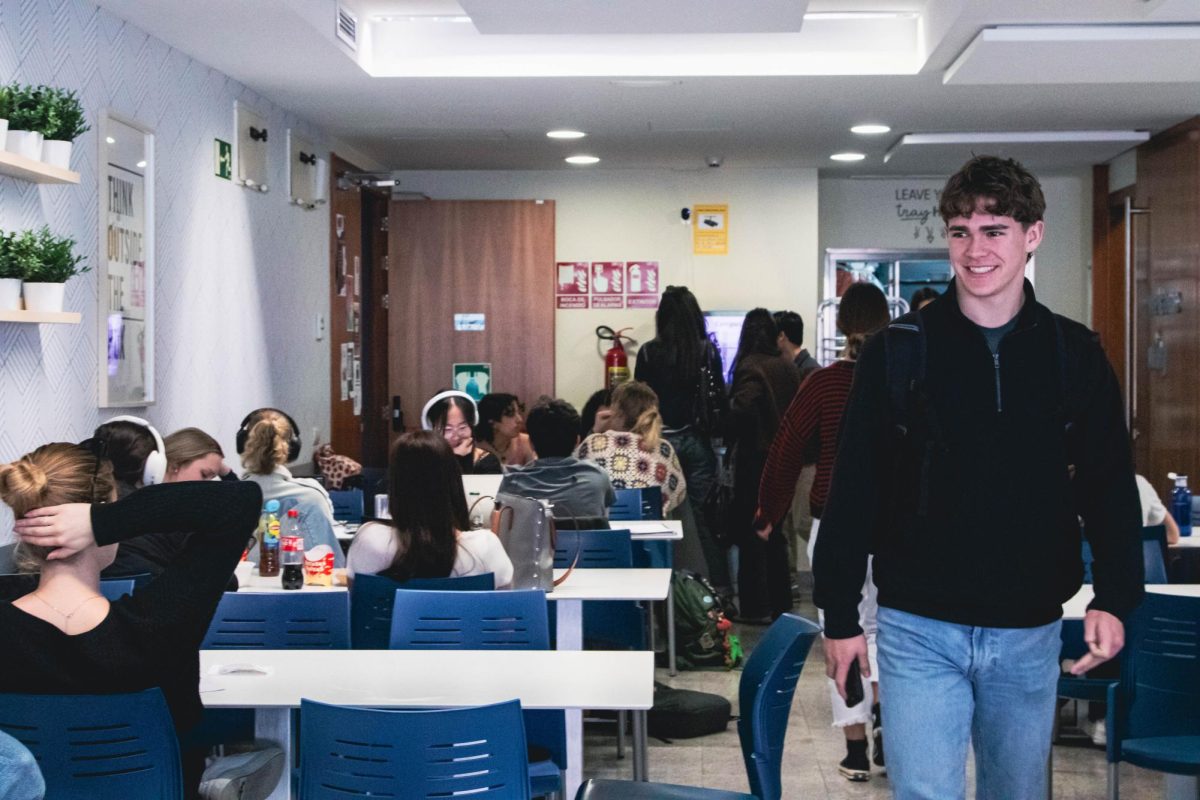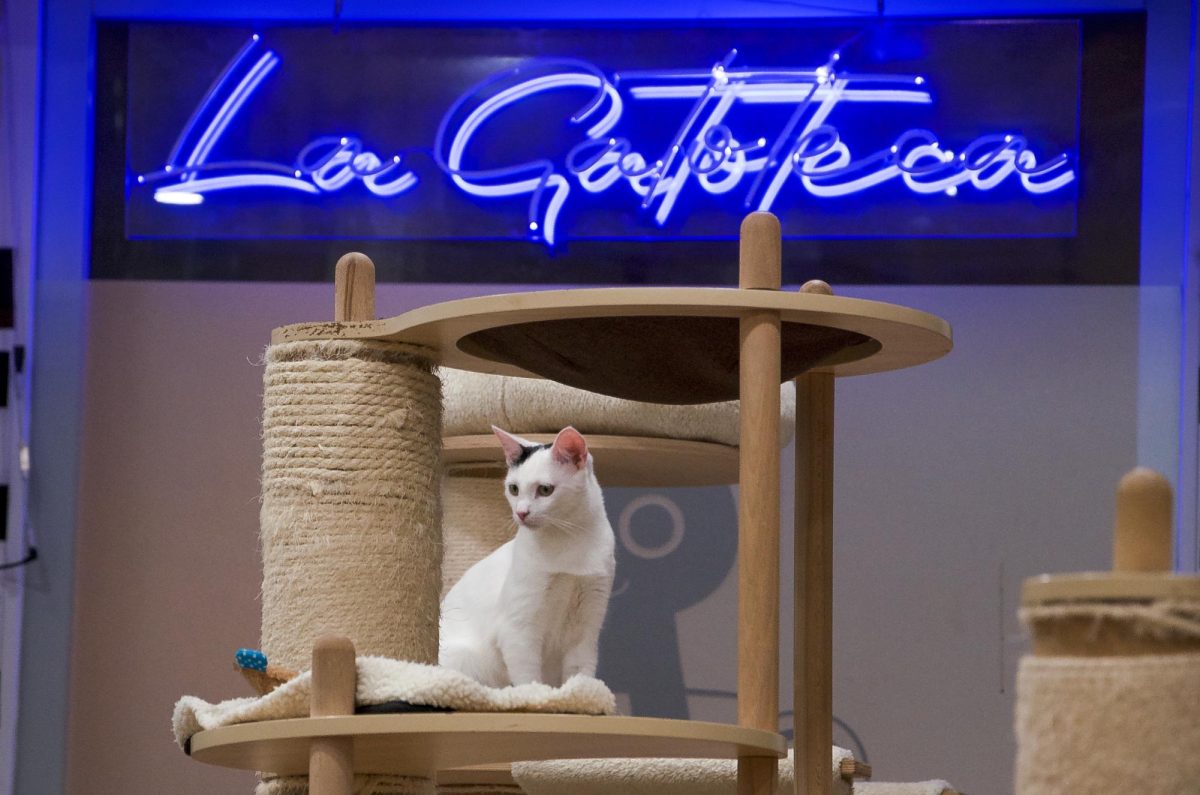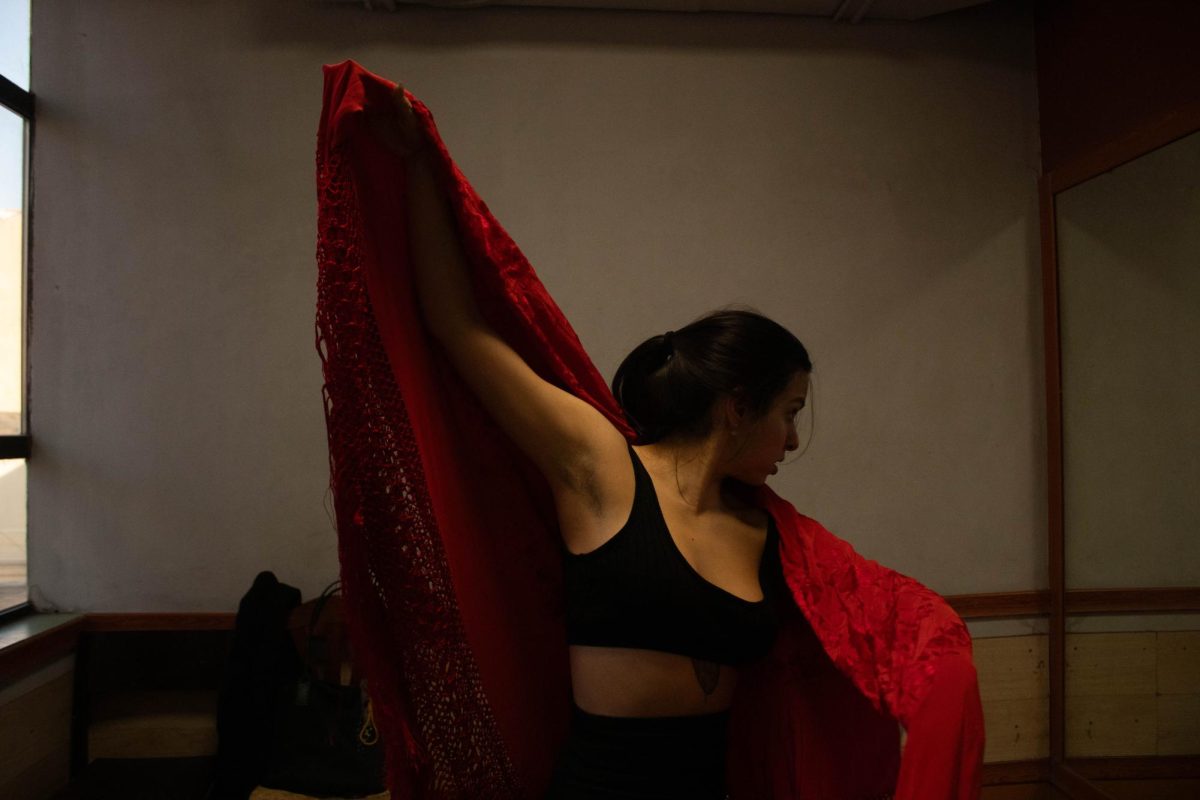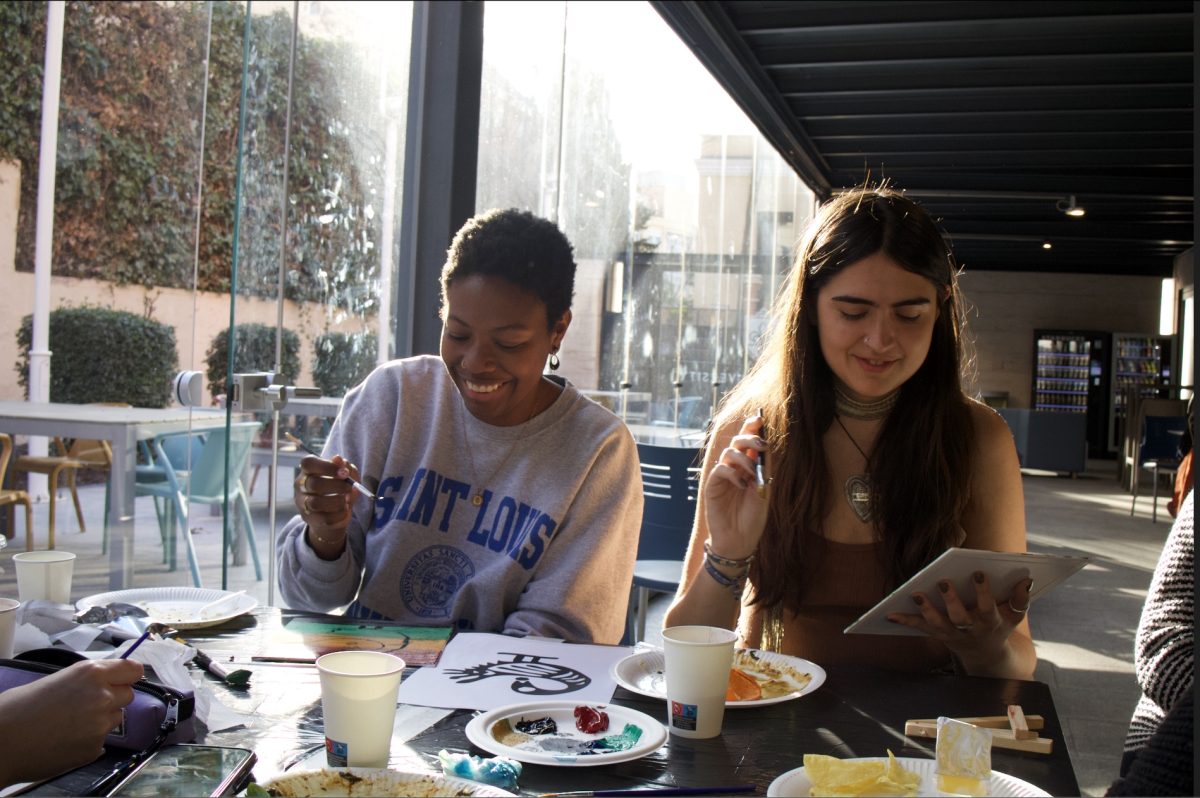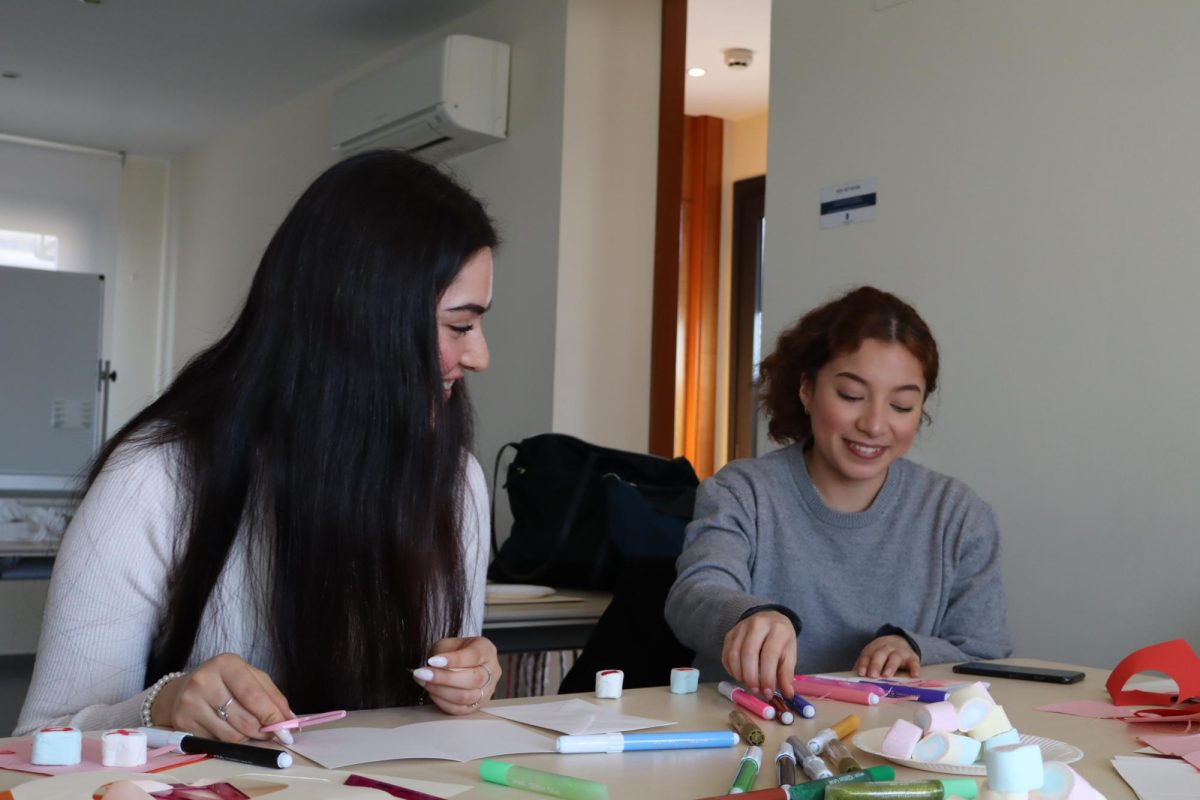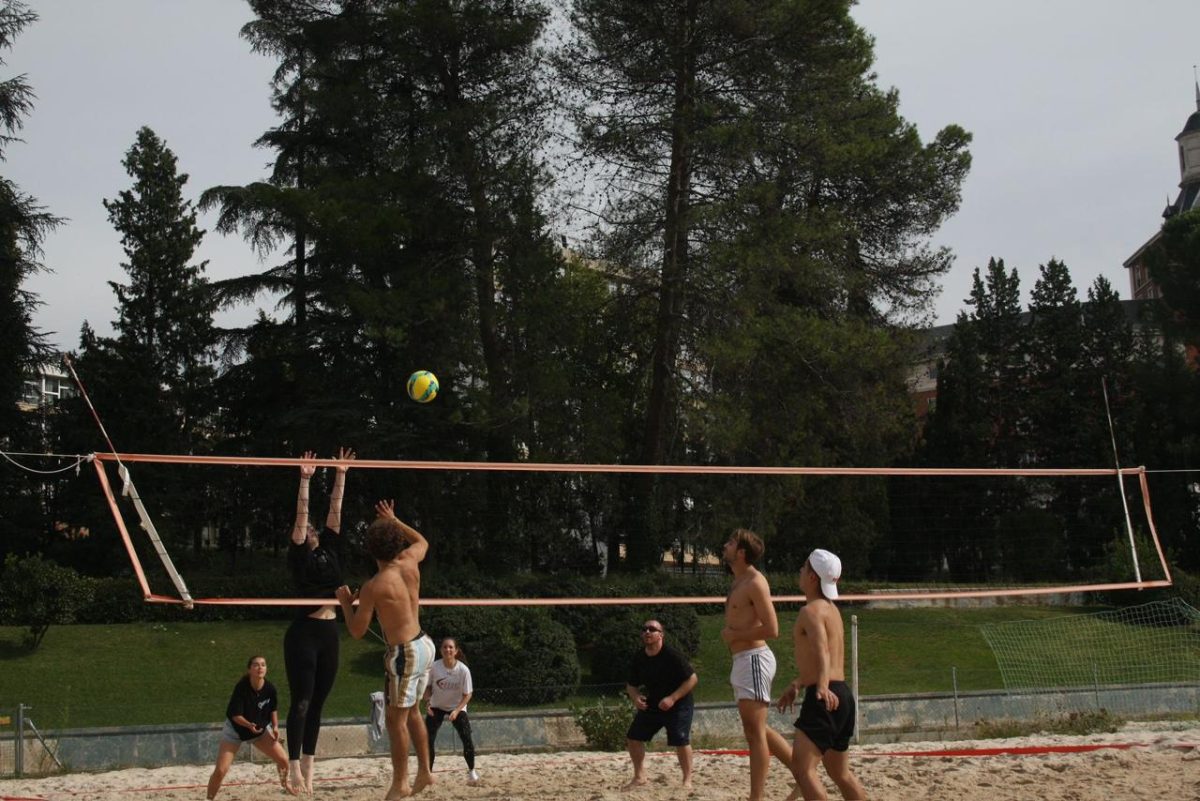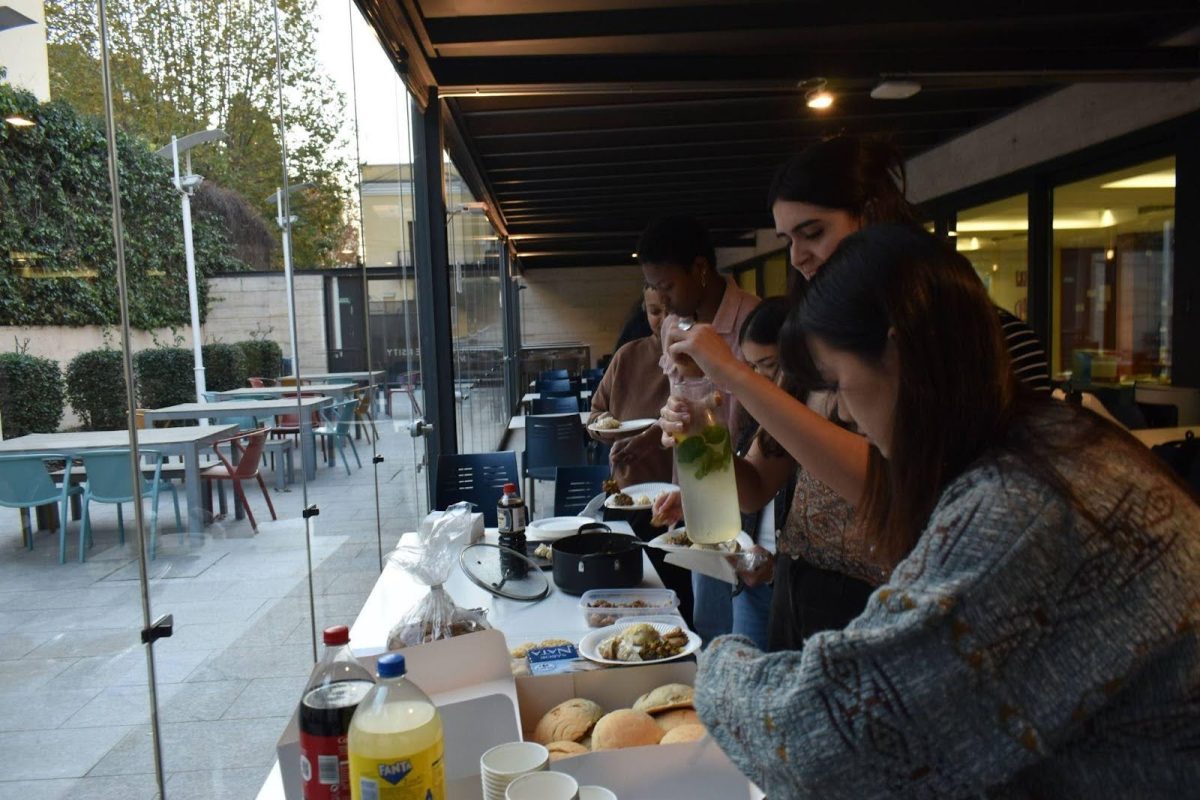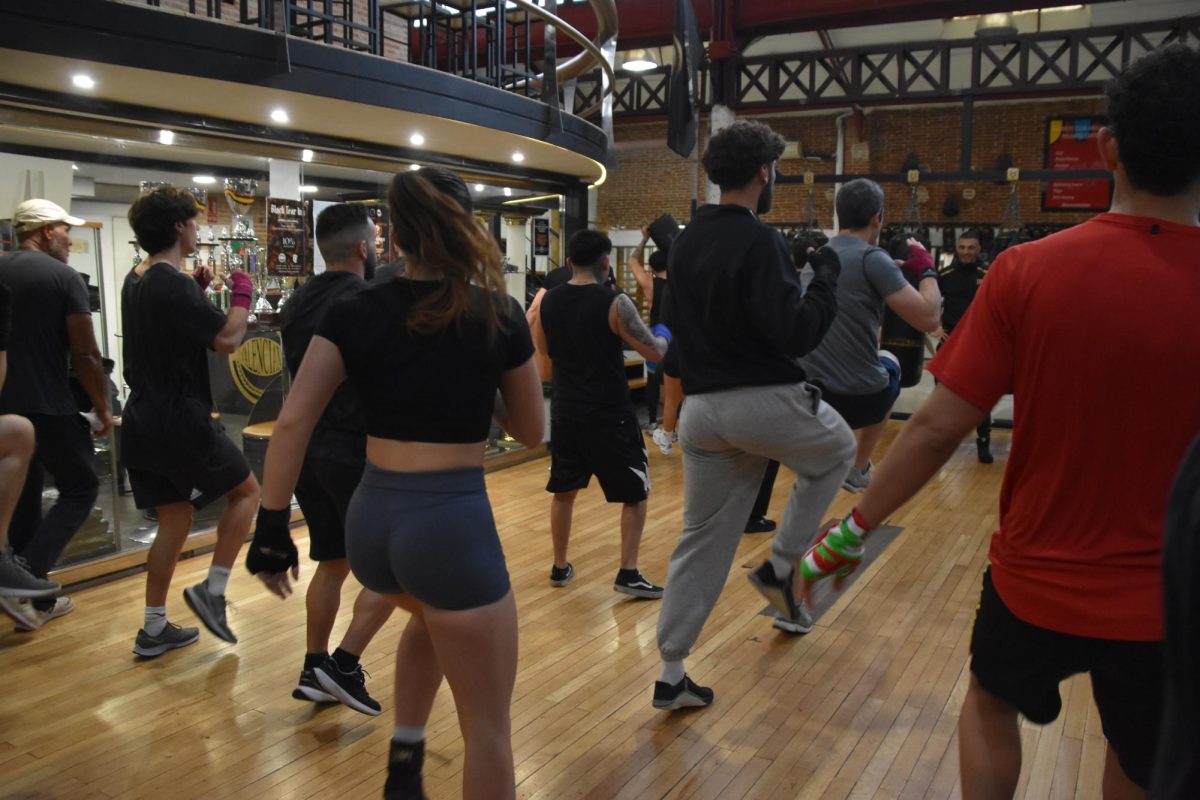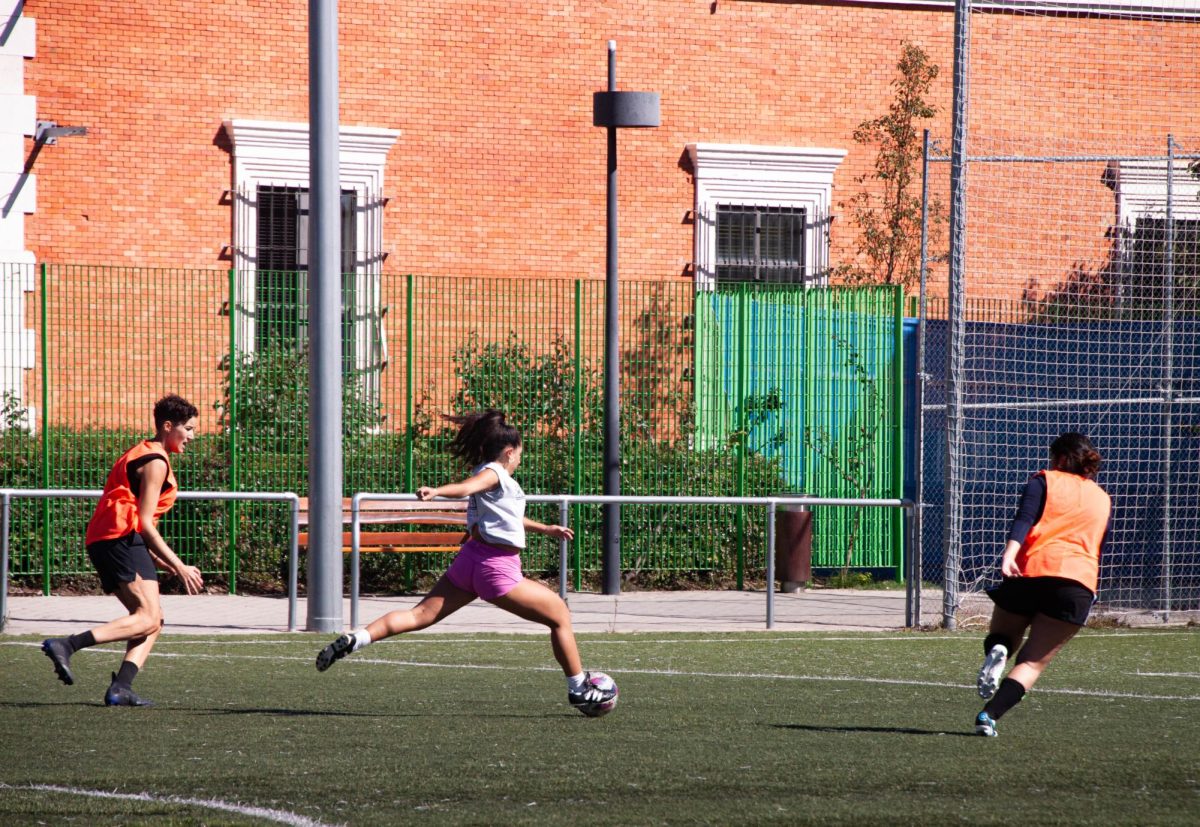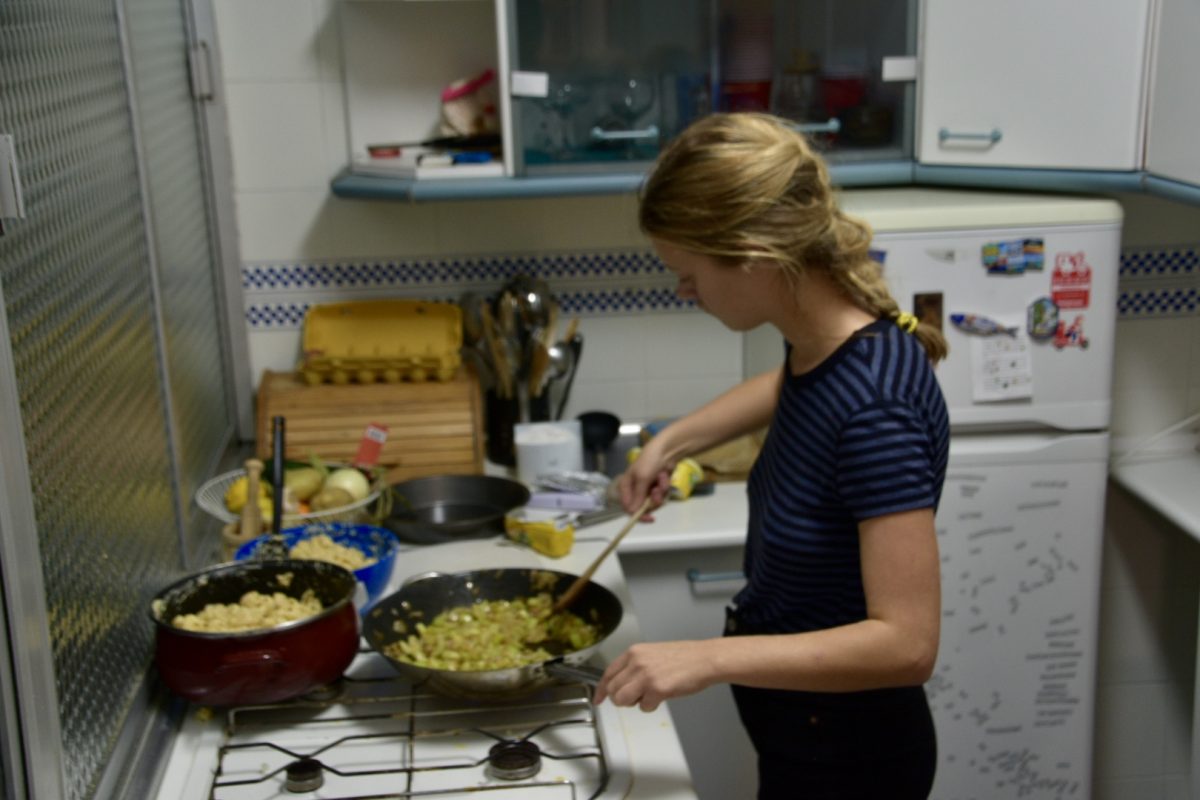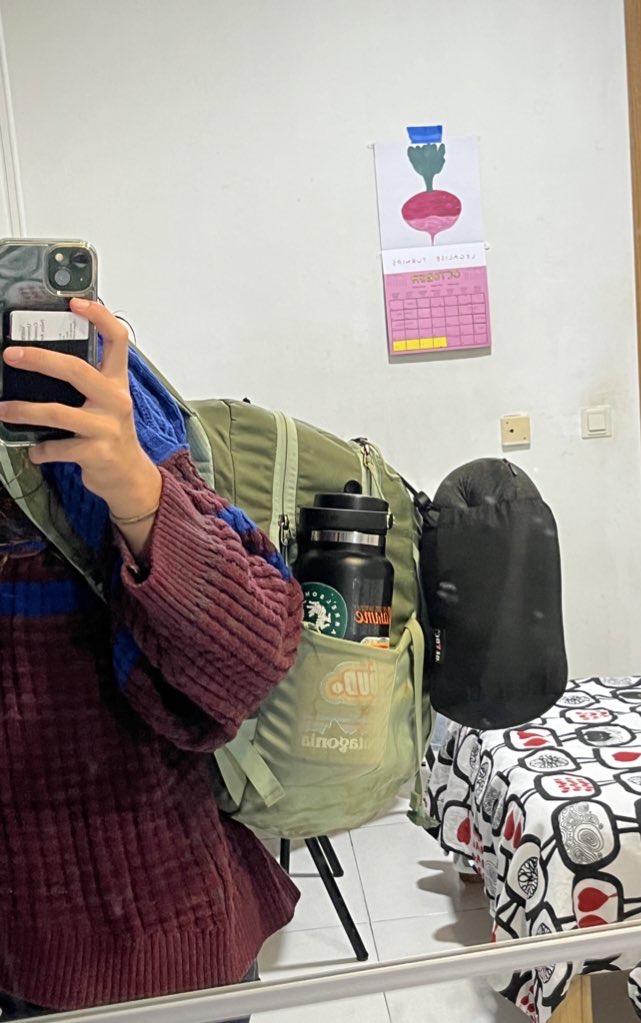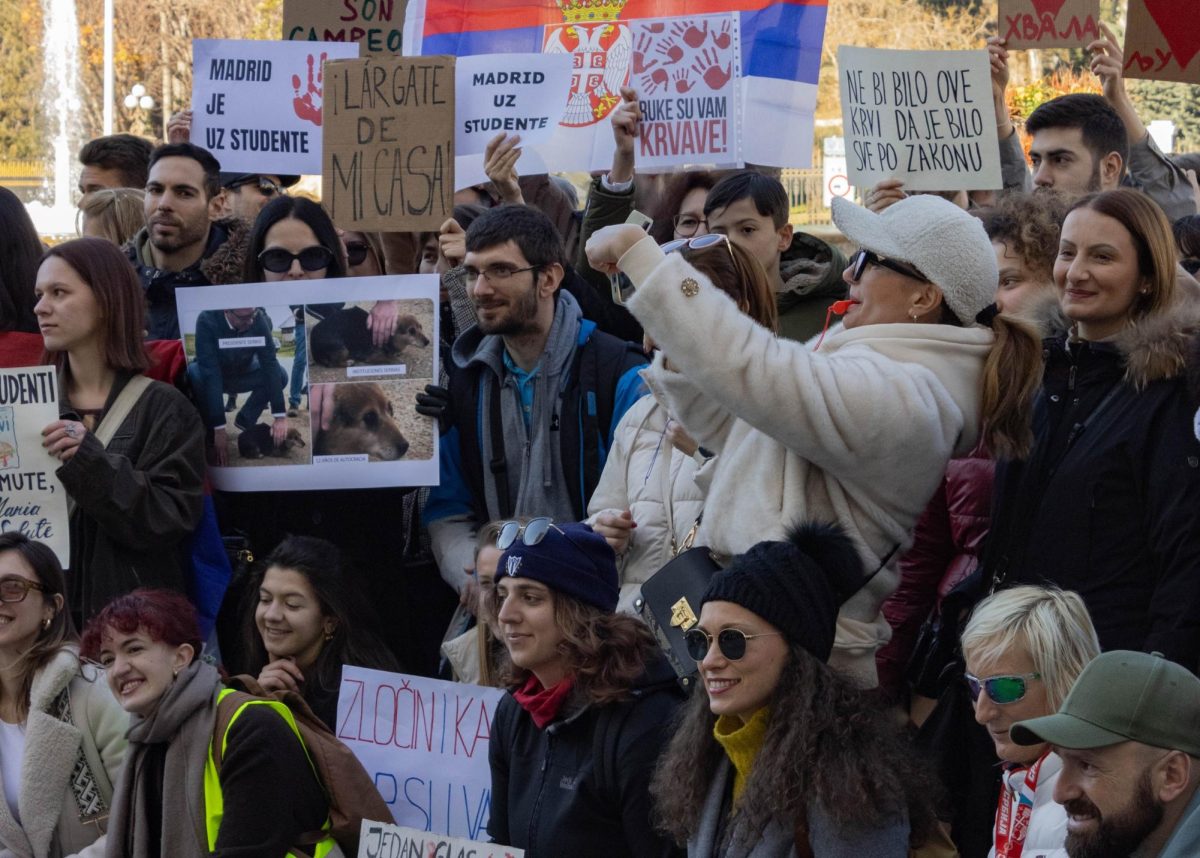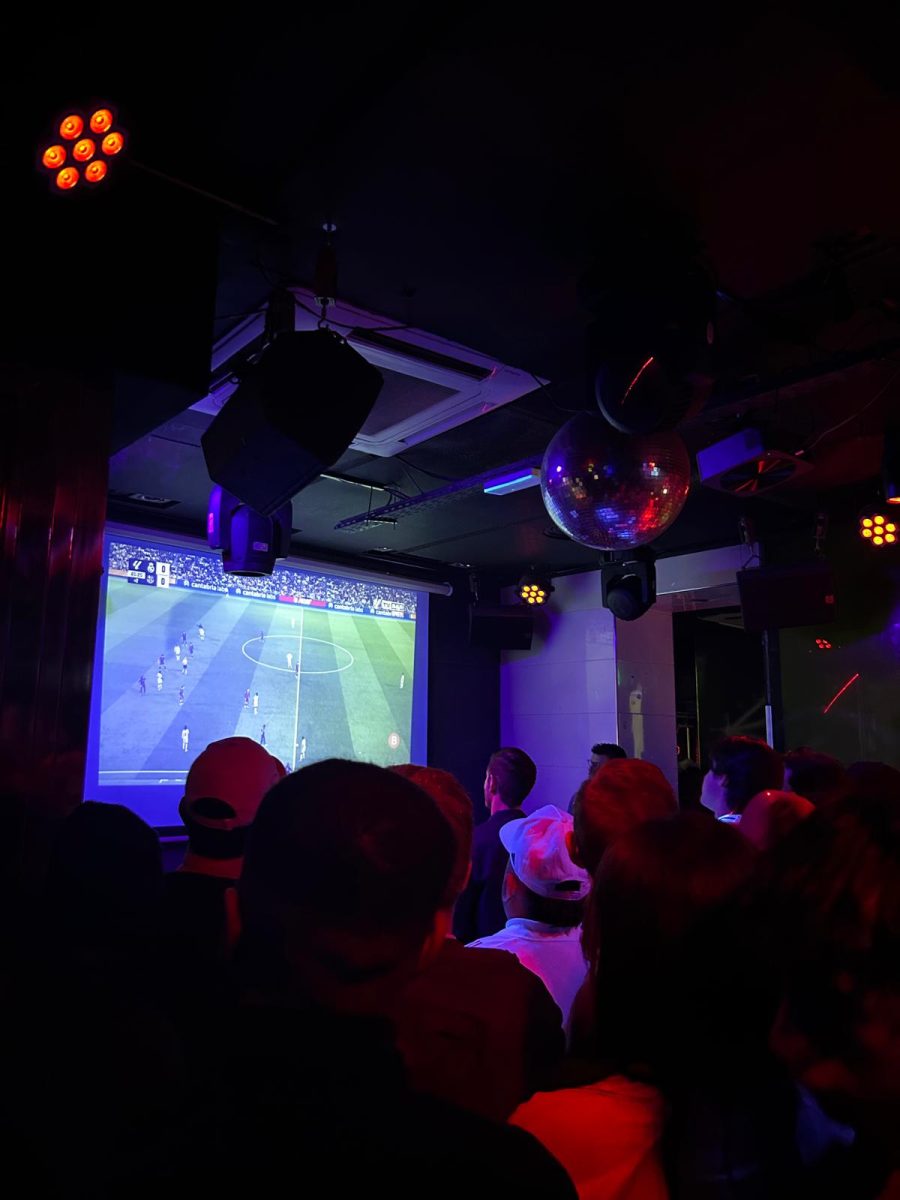Female athletes at SLU-Madrid have a new sport to play; the school has added a women’s soccer team to its roster this semester, after years of failed attempts. Cesar Rioja, the campus sports director, said that he had been trying for a long time to start a team but never succeeded in attracting enough players. This year, however, female students approached him to start the club.
“I am very happy that more people are excited about this,” said Rioja.
According to Rioja, who is also the club’s supervisor, 51 girls enrolled tojoin, and about 15 students attend each practice. There were no tryouts, Rioja said. Instead, the girls went straight into training with coach David Aldeano. The team trains every Saturday from 3 p.m. to 4 p.m. at the Ocio y Deporte Canal soccer fields on Avenida de Islas Filipinas, which are a ten minute walk from the SLU-Madrid campus. At their practice on Sep. 28, the team went over fundamentals like passing, dribbling and shooting. They ended the session with a practice match.
The team will focus on training and playing friendly matches this academic year, said Rioja, with the goal of competing in official tournaments in fall 2025.
World Cup spikes interest
Usually girls’ sports at Spanish schools are dominated by games like volleyball, Rioja said. However, interest in soccer has spiked recently. He attributed this not only to the overall growth of the sport among women in Spain but also to the victory of the Spanish National Women’s Team, La Roja, in the 2023 FIFA Women’s World Cup.
“Big events like this motivate people to practice and participate in sports,” said Rioja.
Many students were surprised to hear that there was previously no girls’ soccer team at SLU. Sophie Sellers, an ex- soccer player from Nashville, thought it was “wild.”
Where were the women’s teams?
Currently a visiting freshman at SLU Madrid, Sellers is a fan of sports like hockey, baseball and figure skating.
She played for the hockey team at her all-girl’s highschool, the only female team in her city.
“We would have to play matches with the guys’ teams,” said Sellers.
Sellers worked for her city’s hockey team, The Predators, at their local stadium and noticed a clear imbalance between the men’s and women’s teams at the professional level.
“There is no professional women’s hockey league,” said Sellers. “Men’s sports get more people to watch, [they] bring in more money.”
While Spanish law does not mandate gender equity in sports like the U.S. Title IX policies, SLU-Madrid tries its best, according to Rioja.
“My job is to promote all sports for everyone,” said Rioja.
The team creates a safe space
Ella Babigian, a visiting student at SLU and high school soccer player, said she did not know there was a team at first. So she would go out to the field and juggle with her ball by herself. She joined the soccer team to continue playing the sport and because it provided her a “great outlet from school.”
“It feels awesome,” said Babigian, still catching her breath from practice. “Not to be corny, but I really feel part of a change.”
The team is led by senior Yelica Espinosa and junior Lilla Orbán, both lifelong soccer fans.
“I’ve been playing soccer since I was born,” said Espinosa, a psychology major with a minor in marketing.
Espinosa and Orbán said their focus goes beyond skill development. They aim to create a fun, stress-free environment where women can feel at ease, without the fear of being “kicked off” the team.
“The goal is to see where everyone’s at, practice together, and maybe even play against other universities or set up pick-up games,” Espinosa said.
Expinosa and Orbán said they decided on Saturday practices to accommodate students’ tight weekday schedules. Consistent participation has already proved difficult due to many students traveling or having weekend responsibilities, they said. Still, between 13 and 18 players show up each week.
In the future, the team leaders hope to promote participation by hosting mixed pick-up games with the men’s team.
“Maybe playing with the boys could attract more girls, but I’m not sure—it could create motivation, or it might create division.” said player Aydalet Ramirez,a sophomore.
The team’s priority, she said, should be enjoyment and friendship rather than competitiveness.
“We’re here because it’s fun, and that’s what matters most,” Ramirez said.
For many athletes, being part of the team means more than just playing a game. Ramirez sees soccer as a way to better her mental health.
“Soccer has always been present in my life, something I constantly rely on,” she said. “When we practice, it’s pure fun and adrenaline. It’s a setting where you can grow and thrive in a healthy environment.”

